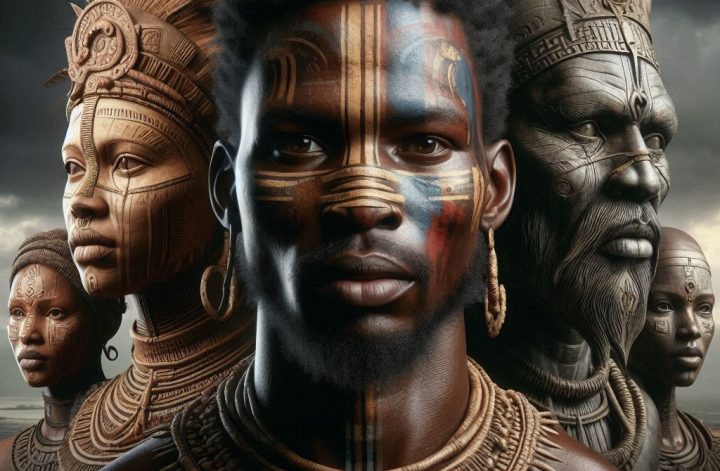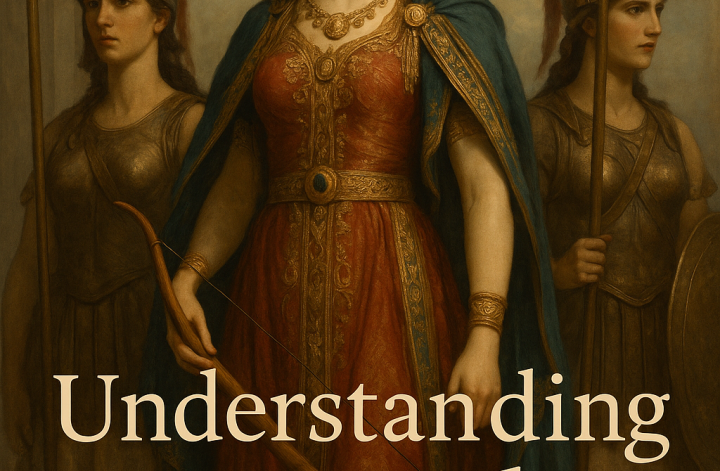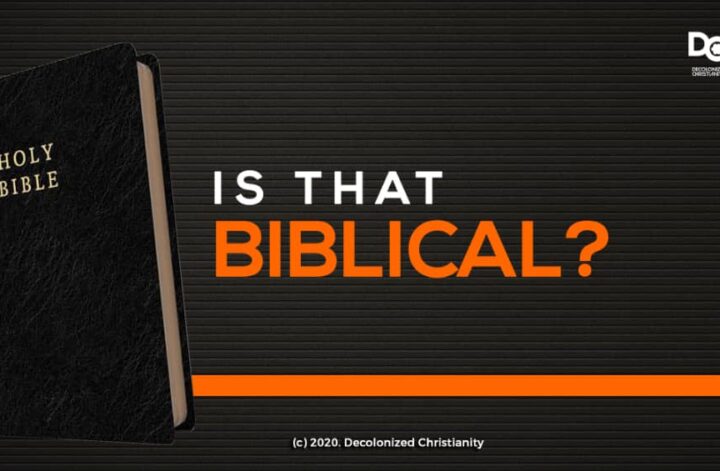The Gods in the Divine Council
It’s probably no exaggeration that Psalm 82 is one of our churches’ many “forgotten passages” today. Yet, this Psalm has been described as one of the most important passages in the whole Bible. It is also one about which some scholars are losing hope of ever satisfactorily resolving its various parts. Some of the content of the Psalm is familiar to churchgoers because Jesus referenced it in John 10, and both its use by John and its original setting have been hotly debated.
There are two relevant camps of scholarship on the passage: those who insist that the Psalm refers to humans, judges or kings, and those who argue that the text refers to gods other than Yahweh. The Psalm itself is relatively short, and I shall try to address the main points in this piece. To the beginning then:
Tehillim (Psa) 82:1 CJB
Elohim [God] stands in the divine assembly; there with the elohim [judges], he judges:
I am using the Complete Jewish Bible version to highlight some key points. Notice that the Hebrew text of verse one has two classes of “elohim” in it. As I detailed elsewhere, “elohim” is not a proper noun. In the Hebrew Bible, “elohim” may refer to Yahweh, the gods of ancient Israelite neighbors, the spirit of a dead human, or angels. Hebrew grammar rules, as well as contexts, help determine what the referent of elohim is. In this verse of Psalm 82, the first occurrence of elohim refers to Yahweh (partly because of the use of singular verb) while the other occurrence refers to other beings.
Humans or Gods?
Here is where the debate begins: what other beings – divine or human? The more familiar majority view is that the beings are humans – and many go that route. One assumed advantage of this reading is that it avoids the question of “polytheism” where we have many gods running the show. However, that reading doesn’t deliver as much as it may appear to promise.
First, the Hebrew Bible has other examples of Yahweh ruling amid other elohim (or gods). Perhaps the clearest example concerns the Hebrew Bible’s account of the judgment of Ahab in 1 Kings 22. Ahab had become a terrible king, and Yahweh was ready to cut him off from the earth for all the atrocities unrepentantly committed. Strangely, however, instead of Yahweh pulling Ahab’s plug to vaporize him from the matrix that is the earth, Yahweh, in a divine council or court, appears to defer to the elohim in attendance on how to proceed:
1 Kings 22:19-21 NRSV
[19] Then Micaiah said, “Therefore hear the word of the Lord: I saw the Lord sitting on his throne, with all the host of heaven standing beside him to the right and to the left of him. [20] And the Lord said, ‘Who will entice Ahab, so that he may go up and fall at Ramoth-Gilead?’ Then one said one thing, and another said another, [21] until a spirit came forward and stood before the Lord, saying, ‘I will entice him.’
The passage goes on to depict Yahweh as approving of the idea of the spirit who said he would entice Ahab to his death.
There are other examples such as in Isaiah 6, Zechariah 3, and Daniel 7. The careful reader of the Old Testament would notice that typically when the God of Israel is depicted, he has a plethora of divine beings around him. That idea may have even informed Elisha’s confidence in 2 Kings 6:16. The New Testament continues the same view. In fact, Revelation chapters 4 and 5 primarily reuse well-known Old Testament images and ideas.
Second, if we define our terms correctly, the question of polytheism doesn’t have to arise. If polytheism is belief in multiple gods, then that is not the picture we see of the ancient Israelites (when they were at their best behavior, of course); they trusted in Yahweh. But they definitely affirmed that there were other gods that the other nations ran after. The polemic that became a title, “The Most High God,” partly resulted from interactions with neighbors and trying to prove who really ran the show.
It is worth stressing that God constituted the divine council. He sovereignly chose to run the show with the input of some of his created beings even as he remained omniscient. In Ahab’s death example above, for instance, God knew that the earlier suggestions of the members of the council would not achieve the goal. The moment a solid idea was put forward, he knew it would work. The picture is a God who is secure in himself and willing to share his rule with his elohim.
Notice also that the words of the Shema in Deuteronomy 6:4 do not constitute a denial of the existence of other gods: “Hear, O Israel: The Lord our God, the Lord is one.”
The English Standard Version adds an alternative rendition of this verse in a footnote: “The Lord is our God, the Lord alone.” So, the Shema’s point is that there was only one God for Israel, and he was Yahweh.
Now, let’s return to Psalm 82. Tehillim (Psa) 82:6-7 CJB
[6] “My decree is: ‘You are elohim [gods, judges], sons of the Most High all of you. [7] Nevertheless, you will die like mortals; like any prince, you will fall.’”
This is a well-known idea among churchgoers because of John’s use of it. In its original context in Psalm 82, the elohim being addressed are the same ones in the divine court seated in verse one. These elohim appear to have failed in their role as judges and the cosmic order has suffered as a result. They favor the wicked and deny justice to the fatherless and the poor – perhaps, with the help of human rulers. McClellan observes that the “maintenance of that order was absolutely the purview of each nation’s patron deity” (844), dismissing the Human view of the gods in question. It is such a big deal because Yahweh doesn’t call the divine assembly to warn these other elohim. Instead, he pronounces a judgment on them. Yahweh had decided to revoke the elohim’s immortality so that they would die as humans do. Verses 6 and 7 make for an awkward reading if we suppose the elohim are humans. Of course, we established earlier that “sons of God/the Most High” in the Old Testament in contexts like Psalm 82 refer to divine beings.
If Yahweh judges these wayward elohim by sentencing them to death, what would then happen to the governmental vacuum that will result? In other words, since these elohim are judges apparently doing the important task of directing the affairs of the world in some important ways, what happens if they are no more? The Psalmist ensures there will be no confusion:
Tehillim (Psa) 82:8 CJB
[8] Rise up, Elohim, and judge the earth; for all the nations are yours.
Some translations say God will inherit the nations. So, Yahweh will judge the earth in the meantime.
Perhaps it was too early for the Psalmist to know, but New Testament writers will later recognize that glorified humans will play a role in filling the governmental vacuum created by the sentencing of the wayward elohim. Humans will be members of God’s reconstituted divine council in the eschaton.
Work Cited
Daniel McClellan. “The Gods-Complaint: Psalm 82 as a Psalm of Complaint.” Journal of Biblical Literature, vol. 137, no. 4, 2018, pp. 833–51. JSTOR, https://doi.org/10.15699/jbl.1374.2018.452196. Accessed 6 Oct. 2024.




